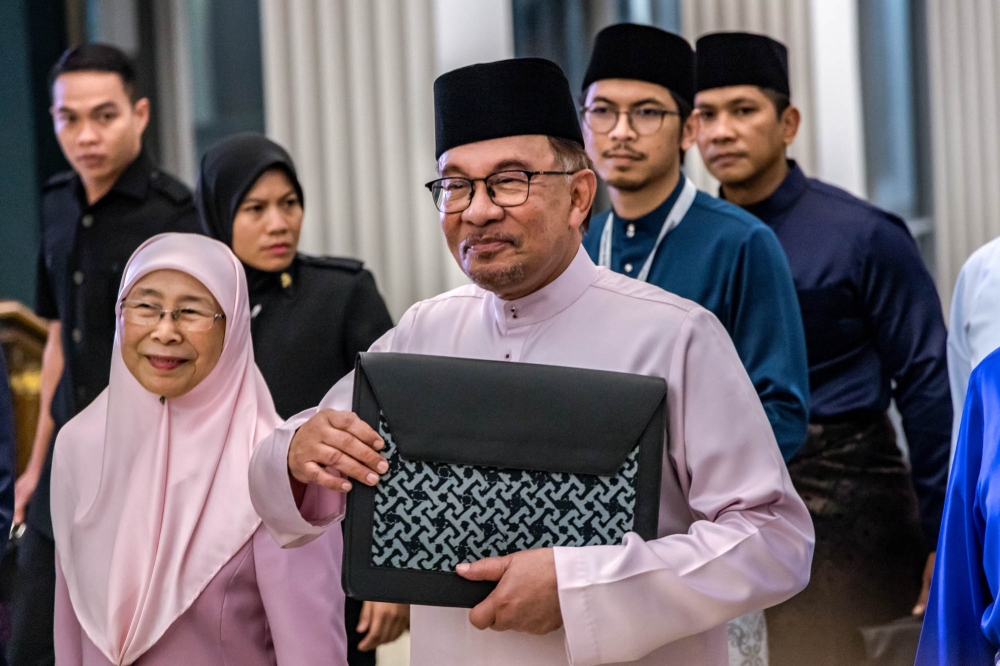OCTOBER 20 — I am sure that many of the details of Budget 2024 have been analysed thoroughly by analysts, tax experts and policy professionals a week after it was tabled on the 13th of October, 2023. To ensure that Budget 2024 is a successful one, the Government of Malaysia (GoM), led by the Ministry of Finance (MoF), needs to get to work hard and work smart to properly implement, measure, disclose and later on, innovate on the many policy measures which have already been announced.
There are many policy issues which require careful attention on the part of the Minister of Finance and the Ministry of Finance for proper and timely execution. For example, the tax on luxury items was announced in February 2023 for the 2023 budget but could not be implemented in 2023. The Ministry of Finance was also not ready to implement the Global Minimum Tax in 2024 which was announced in Budget 2023. It is good that the Ministry has more time to prepare for GMT in 2025 but if it is to be delayed for another year, the foreign investor community will start to have doubts about the ability of the Government of Malaysia to stick to its publicly announced timelines.

There are also many policy issues where the power of implementation lies outside the direct control of the Ministry of Finance. The much-awaited revisions to the Malaysian My Second Home (MM2H) policy still have not been publicly announced in 2023. A reversion to the previous, more open, and less onerous policy, with perhaps a tiered system for different categories of MM2H applicants would be welcomed by the stakeholders. The GoM also must decide if the policy jurisdiction of the MM2H programme will revert back to the Ministry of Tourism or if it will remain with the Ministry of Home Affairs. Similarly, the policy of allowing foreign students to work in Malaysia after they graduate from local institutions is a much-welcomed move but would require careful coordination between the Ministry of Home Affairs, the Ministry of Higher Education, and the Ministry of Human Resources.
Apart from policy implementation challenges, MoF and the GoM should also pay attention on how to measure the effectiveness of the various budget initiatives announced. For example, there have been many digitalisation initiatives that have been undertaken by different Ministries and agencies but there has been very little in the way of measuring whether these funds have been effectively deployed. The SOPs of many of the government ministries give focus to the application process and the subsequent deployment of funds but is less focused on measuring the success (or lack thereof) after the deployment of these funds. Without proper measurement mechanisms, it would be harder for individual Ministries and also MoF to update and improve on these programs and initiatives. For example, I would have liked to see how effectively the Business Intervention (BI) matching grant under the Industry 4.0 / Industry 4WRD program was deployed from 2020 to 2023.
It is not sufficient to stop at implementation and measurement in some cases. Some of the results should also be publicly disclosed. For example, it is good that Budget 2024 increased the allocation for the Ecological Fiscal Transfer (EFT) to the state governments from RM150 million in 2023 to RM200 million in 2024. But there should be transparency and disclosure on the part of MoF on how these funds have been disbursed to the various states. This kind of disclosure will also reveal the capacity of individual state governments to receive and properly manage these transfers for the purpose of preserving its own forests. Where there are gaps, the federal and state governments must work together to close these gaps.
Finally, there must also be room for policy innovation by the GoM. For example, the EFT covers forests and the ecology on land only. Why not consider extending the EFT to cover marine ecology as well including sea grass, which is also an important source of photosynthesis? I am encouraged by the announcement in Budget 2024 that the National Digital Identity (NDID) project will be expedited and that it will be undertaken by the new Govtech Nucleus Unit which is currently under the Ministry of Finance. The successful implementation of the NDID can lead to many other policy innovations in terms of delivery of government services and can also spur innovation and delivery of services on the part of the private sector. An NDID can significantly reduce electronic Know-Your-Customer (e-KYC) processing costs and time and will lead to more innovations in the fintech space in Malaysia. We have seen this take place under the Govtech unit in Singapore which has rolled out SINGPASS, Singapore’s National Digital ID and also many other services that build on the SINGPASS electronic ecosystem.
I wish the Ministry of Finance and the Government of Malaysia success in the proper implementation, measurement, disclosure, and innovations related to Budget 2024.
*Media statement by Ong Kian Ming, former Deputy Minister of Investment, Trade, and Industry (Miti), on the 20th of October 2023.
**This is the personal opinion of the writer or publication and does not necessarily represent the views of Malay Mail.





















